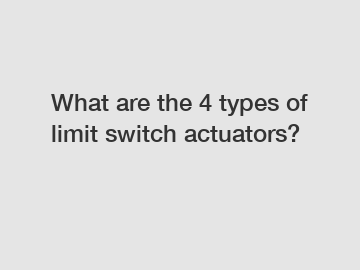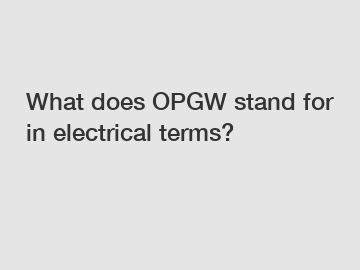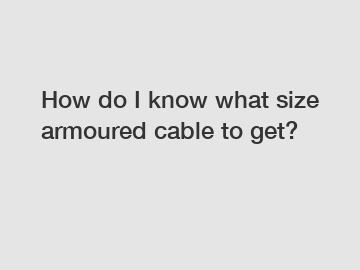What is a locking connector?
What is a Locking Connector? Explore Its Uses, Advantages, and Types.
What is a locking connector? If you've ever dealt with cables, you may have come across this term. Locking connectors are an essential component of electrical and electronic systems, providing a secure and reliable connection between various devices. In this article, we will delve into the world of locking connectors, discussing their uses, advantages, and different types.
Uses of Locking Connectors:

1. Industry and Manufacturing: Locking connectors find extensive application in industries and manufacturing settings. Whether it's connecting heavy machinery, automated equipment, or sensors, these connectors ensure a solid and uninterrupted connection, minimizing the risk of accidental disconnection and improving overall efficiency.
2. Audio and Video Systems: If you have ever set up audio or video equipment, you may have noticed connectors with a locking mechanism. These connectors are commonly used in professional audio and video systems where secure connections are crucial to prevent signal loss or distortion, especially during live performances or critical recordings.
3. Aerospace and Defense: In the aerospace and defense sectors, where reliability and safety are of utmost importance, locking connectors play a vital role. They ensure that essential systems such as avionics, communication, and data transmission remain intact, even under extreme conditions, vibrations, or gravitational forces.
Advantages of Locking Connectors:
1. Secure Connection: As the name suggests, one of the significant advantages of locking connectors is the secure connection they provide. The locking mechanism ensures that the connectors remain firmly attached, minimizing the risk of accidental disconnection due to movement or vibrations. This is particularly crucial in high-risk environments or critical applications where a reliable connection is essential.
Additional resources:Which power battery pack offers the best value for money?
What is the difference between MPO Type A and B?
Which PVC SWA cable brand offers the best value for money?
What does a limit switch do on an actuator?
Revolutionize Your Vehicle's Performance: Unraveling the Secrets of Automotive AGM Start-Stop Batteries
What is withdrawable switchgear?
Which are the top 10 tips for finding cheap B2B marketing software at the purchase stage?
2. Durability: Locking connectors are designed to be durable and can withstand harsh environmental conditions. Whether it's extreme temperatures, moisture, or physical stress, these connectors are engineered to maintain their functionality and integrity, ensuring long-term reliability.
3. Reduced Signal Interference: Locking connectors often have superior shielding properties, which helps in reducing or eliminating external electromagnetic interference. This is particularly important in audio, video, and data transmission applications where clean, uninterrupted signals are necessary for optimal performance.
Different Types of Locking Connectors:
1. Threaded Locking Connectors: These connectors feature a threaded sleeve that ensures a secure connection by twisting and locking the mating connector. They are commonly used in industrial applications where vibration or movement can cause regular connectors to disengage.
2. Push-Pull Locking Connectors: These connectors utilize a push-pull mechanism to engage and disengage the connection. With a simple push or pull, you can securely connect or disconnect devices. These connectors are widely used in audio and video equipment, medical devices, and automotive applications.
3. Bayonet Locking Connectors: Bayonet connectors employ a locking mechanism using a series of pins and slots. By aligning and rotating the connectors, the pins fit into the slots, providing a stable and secure connection. This type of locking connector is often found in military, aerospace, and high-end audio equipment.
In conclusion, a locking connector is a type of connector that ensures a secure and reliable connection between various devices. Widely used in industries, audio-video systems, and aerospace applications, these connectors offer advantages like secure connections, durability, and reduced signal interference. Whether you opt for threaded, push-pull, or bayonet locking connectors, choosing the right type depends on the specific requirements of your application. With their robust design and functionality, locking connectors are an essential component in many technical setups, providing peace of mind and optimal performance.
For more zhancheng twitter, 9 pin aviation connector, waterproof 8 pin connectorinformation, please contact us. We will provide professional answers.
Additional resources:Are Ni-Cd Battery Packs Environmentally Friendly?
What is Electric Foot Warmer, How does it work?
Who is the best supplier for lithium batteries?
What is one of the benefits of using a guard tour system?
What is the function of fiber distribution cabinet?
What is a carriage bolt used for?
What size welding cable for 400 AMPs?
238
0
0
Related Articles
-
251
0
0
-
What is the difference between Camel 2 and Camel 3?
Welcome to our comprehensive guide on the key differences between Apache Camel 2 and Apache Camel 3.
257
0
0
-
What does OPGW stand for in electrical terms?
In today's fast-paced world, electricity has become an indispensable part of our lives.
280
0
0
-
258
0
0
-
275
0
0
-
Discover the Unbeatable Durability: Stainless Steel Micro Switches Solving All Your Queries!
Discover the Unbeatable Durability: Stainless Steel Micro Switches Solving All Your Queries!
237
0
0
-
282
0
0
-
516
0
0









Comments
All Comments (0)